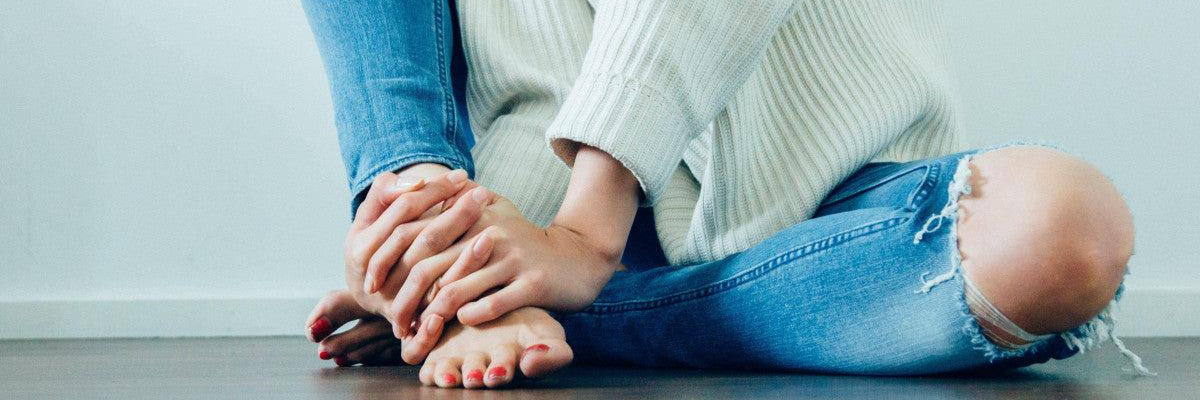Qu’est-ce que le vaginisme ? Quelles causes et solutions ?
12 novembre 2020

Parmi nos clients, nous avons souvent des messages de femmes qui rencontrent des douleurs lors des rapports sexuels. Après examen médical, elles n'ont apparemment pas de "maladie". Le vaginisme ne fait en général pas partie de vocabulaire de leur gynécologue. Mais alors, de quoi parle t'on ?
Qu’est-ce que le vaginisme ?
Le vaginisme est encore peu connu, pourtant il touche des milliers de personnes en France et dans le monde. Il se caractérise souvent par des contractions involontaires, incontrôlables et répétées des muscles entourant le vagin. Cette contraction réflexe rend la pénétration souvent délicate voire impossible (que ce soit avec un tampon, un doigt, un spéculum, un pénis, …).
Il existe plusieurs types de vaginisme.
- Le vaginisme primaire: quand la douleur et les contractions musculaires ont toujours été présentes au cours d’une vie,
- Le vaginisme secondaire, qui apparaît au cours de la vie alors qu’aucune douleur lors de la pénétration n’avait été ressentie jusque-alors.
- - Le vaginisme global, qui se produit dans toutes les situations, quel que soit le/la partenaire et quelle que soit la tentative de pénétration.
- Ainsi que le vaginisme partiel ou situationnel, qui intervient dans certaines situations uniquement (avec certain.e.s partenaires, uniquement lors de rapports sexuels, dans un contexte précis…).
ne pas confondre avec une dyspareunie !
Quelles sont les causes du vaginisme ?
Rappelons que le vaginisme n’est pas une pathologie anatomique.Son origine est souvent d’ordre psychologique et moins souvent de causes physiques. Aucune étude ne démontre les causes exactes du vaginisme mais certains facteurs pourraient néanmoins le provoquer. Ainsi une éducation sexuelle ou affective inexistante ou stricte qui conduit à une méconnaissance de son corps, ou bien la crainte des MST ou d’une grossesse non désirée peuvent engendrer le vaginisme. Il peut aussi résulter de pénétration(s) vaginale(s) douloureuse(s) dans le passé ou encore d’un traumatisme à la suite d’examens médicaux traumatisants ou encore d’abus sexuels. Il peut aussi apparaître lorsque la personne est stressée, ressent des troubles sentimentaux et/ou professionnels, ou encore qu’ elle souffre d’une infection vaginale. La ménopause peut parfois aussi être un facteur de vaginisme.
En bref, le vaginisme résulte de nombreux facteurs propres à chaque cas. Il est cependant important de mettre un mot sur vos maux pour éliminer toute maladie (Ex : endométriose)
Quelle(s) solution(s) pour y remédier ?
Ce qu’il faut bien comprendre, c’est que quelle que soit la durée depuis laquelle on souffre de vaginisme, celui-ci n’est pas une fatalité. Il se traite très bien, notamment si travail physiologique de détente musculaire et approche psychologique sont associés. Tout d’abord, mettre un nom sur le problème permet de savoir contre quoi on lutte ! Nombreuses sont les personnes n’ayant jamais entendu parler de vaginisme. Puis en trouver les causes et en comprendre l’origine permettent parfois de le vaincre. Cela n’est pas systématique, consulter un spécialiste de santé, notamment un.e gynécologue, un.e psychologue et/ou un.e sexologue formé.e sur le sujet est dans la plupart des cas d’une grande aide. Nous vous recommandons d’ailleurs de ne pas hésiter à consulter un médecin pour tous vos maux et notamment en cas de douleurs .
Certaines personnes accompagnent un suivi médical avec un travail personnel de réappropriation du corps. Il se réalise souvent par paliers, avec des exercices de relaxation, de rééducation périnéale ou bien en utilisant des dilatateurs vaginaux de tailles croissantes au fur et à mesure des progrès réalisés. Une sexothérapie peut aussi être envisagée, ainsi que des thérapies complémentaires comme la sophrologie, la méditation, l’hypnose, etc.
Si tout cela ne suffit pas ! écoutez-vous, ne vous faites pas mal ! Une pratique sexuelle n’est pas juste une pénétration, utilisez des culottes menstruelles pendant vos règles plutôt qu’une protection interne !
Dans tous les cas, il faut garder à l’esprit que le vaginisme se guérit. L’important étant d’y aller à son rythme sans se forcer et de surtout consulter un médecin pour écarter toute maladie !


Commentaires